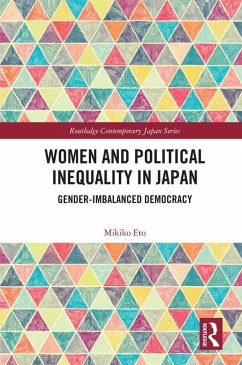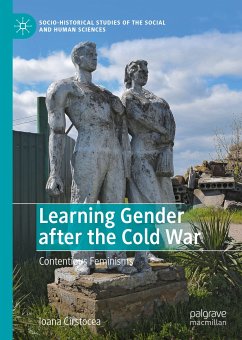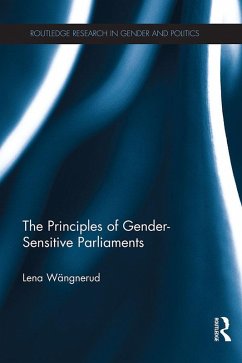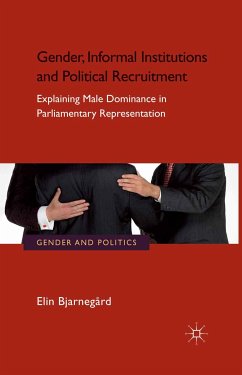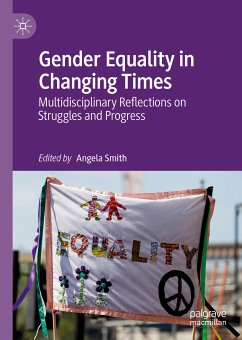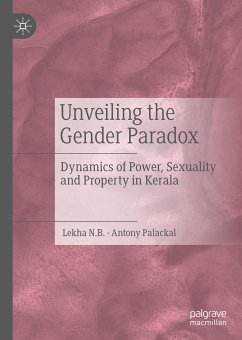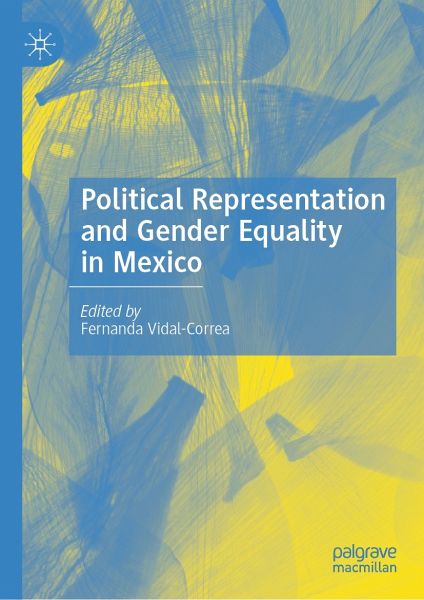
Political Representation and Gender Equality in Mexico (eBook, PDF)
Versandkostenfrei!
Sofort per Download lieferbar
Statt: 117,69 €**
80,95 €
inkl. MwSt.
**Preis der gedruckten Ausgabe (Gebundenes Buch)
Alle Infos zum eBook verschenkenWeitere Ausgaben:

PAYBACK Punkte
40 °P sammeln!
The field of gender and politics has continuously grown, becoming more interdisciplinary and engaging with issues, context and people from all around the world. Because of this, new emerging approaches and studies challenge embedded notions, ideas and preconceptions of how the world is meant to be studied and understood. It is particularly true for studies on women and their engagement in political affairs. How should institutions conceptualize women in order to advance rules and mechanisms that favor women? What roles do representatives have on the making of gender equality? When women are le...
The field of gender and politics has continuously grown, becoming more interdisciplinary and engaging with issues, context and people from all around the world. Because of this, new emerging approaches and studies challenge embedded notions, ideas and preconceptions of how the world is meant to be studied and understood. It is particularly true for studies on women and their engagement in political affairs. How should institutions conceptualize women in order to advance rules and mechanisms that favor women? What roles do representatives have on the making of gender equality? When women are legislating, which are the consequences of the approved legislation?
Dieser Download kann aus rechtlichen Gründen nur mit Rechnungsadresse in A, B, BG, CY, CZ, D, DK, EW, E, FIN, F, GR, HR, H, IRL, I, LT, L, LR, M, NL, PL, P, R, S, SLO, SK ausgeliefert werden.



